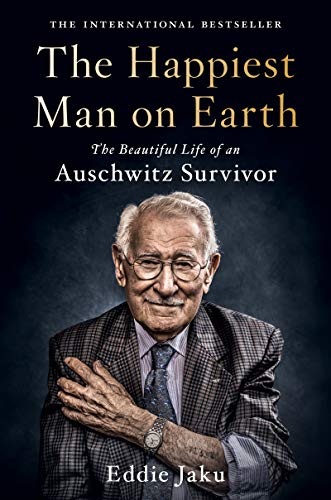8 Best-Selling Nazi Germany Books Millions Trust
Trusted picks from Josh Frydenberg, Michael Girdley, Heather Morris uncover best-selling Nazi Germany books with proven impact and enduring relevance



When millions of readers and top experts agree on a book, it speaks volumes about its enduring value. Nazi Germany remains a pivotal subject in history, shedding light on the forces that shaped the 20th century and the lessons that still resonate today. These best-selling books have been embraced for their proven depth, offering perspectives that span political, military, social, and personal dimensions of that era.
Among those endorsing these works are Josh Frydenberg, Treasurer and Deputy Leader of the Australian Liberal Party, who highlights the vital role of survivor stories in Holocaust remembrance, and Michael Girdley, an entrepreneur who recalls his early exposure to detailed historical narratives like "The Rise and Fall of the Third Reich." Additionally, Heather Morris, acclaimed author of "The Tattooist of Auschwitz," praises memoirs that bring courage and hope to readers worldwide. Their recommendations have helped guide countless readers towards meaningful engagement with this complex history.
While these popular books provide proven frameworks and powerful accounts, readers seeking content tailored to their specific Nazi Germany interests might consider creating a personalized Nazi Germany book that combines these validated approaches for a custom fit.
Recommended by Michael Girdley
Investor and entrepreneur, building multiple businesses
“@thesamparr I remember seeing this book on my parent's shelf as a kid -- that bookcover has to be the most compelling piece of marketing ever. Great book, too.” (from X)
by William L. Shirer, Ron Rosenbaum··You?
by William L. Shirer, Ron Rosenbaum··You?
William L. Shirer, a journalist who reported from Berlin during the rise of Nazi Germany, crafted this detailed chronicle after years of witnessing events firsthand. You gain a deep understanding of how Hitler’s regime came to power, sustained itself, and ultimately collapsed, supported by extensive primary documents like diaries, secret transcripts, and testimonies. The book delves into political maneuvers, military strategies, and the human cost of totalitarianism, making it essential for anyone seeking to grasp the complexities behind the Third Reich's history. If you want a thorough, document-backed narrative rather than a simplified overview, this book offers that rigorous exploration.
by Donald L. Miller··You?
Donald L. Miller, a seasoned historian and professor emeritus, channels his extensive research and storytelling skills into "Masters of the Air," which vividly recounts the air war against Nazi Germany by American bomber crews during World War II. You’ll gain insight into the harrowing experiences of these young men who faced deadly missions at high altitudes, the strategic impact of their raids on German infrastructure, and the complex human dimensions of war — from moments of terror to the camaraderie found in wartime England. With detailed accounts drawn from interviews and archives, this book suits you if you want to understand both the tactical and personal sides of the air campaign against Nazi Germany.
by TailoredRead AI·
This tailored exploration of Nazi Germany reveals the complex political, social, and military forces that shaped one of history's most tumultuous eras. It examines key events, ideological shifts, and personal narratives to deepen your understanding of this period. By focusing on your interests and background, the book creates a personalized journey through the rise, reign, and aftermath of the Third Reich. It covers the interplay between leadership, propaganda, resistance, and the Holocaust with a clarity that connects historical facts to meaningful insights. This personalized guide offers a focused, engaging study experience that matches your specific goals and curiosity about Nazi Germany's enduring impact.
Recommended by Josh Frydenberg
Treasurer and Deputy Leader, Australian Liberal Party
“Today I sent Julian Burnside a copy of Holocaust survivor, Eddie Jaku’s, remarkable book. I hope he finds it educational, after his insensitive & indefensible tweet. We have a collective duty to ensure the atrocities of the Holocaust are not only understood, but never repeated.” (from X)
Eddie Jaku's memoir draws from his harrowing experiences as a Holocaust survivor to share profound insights on resilience and gratitude. Born in Leipzig and enduring brutal camps like Auschwitz and Buchenwald, Jaku offers readers a unique perspective on surviving unimaginable hardship while embracing kindness and joy. Through chapters reflecting on friendship, ethics, and love, you gain practical wisdom on maintaining hope amid despair. This book is especially enlightening if you seek to understand human endurance during Nazi Germany's darkest times and the power of living with gratitude despite loss.
by Giles Milton·You?
What happens when meticulous historical research meets thrilling wartime espionage? Giles Milton's decades of experience unearthing hidden stories led to this vivid account of a secret British unit tasked with sabotaging Nazi Germany from within. You learn about the unconventional tactics, from silent killing techniques taught by William Fairbairn to the inventive sabotage devices engineered by Cecil Clarke, revealing how these mavericks operated behind enemy lines. If you have an interest in World War II’s less-explored covert operations, this book offers detailed narratives that bring those daring missions to life, though it’s less suited for readers seeking comprehensive military strategy analysis.
by Milton Mayer·You?
by Milton Mayer·You?
What if everything you knew about fascism was challenged? Milton Mayer, a research professor at the University of Frankfurt, spent his post-war years interviewing ten ordinary Germans who had been Nazi Party members, aiming to uncover how everyday people gradually accepted authoritarian rule. You’ll gain insight into the subtle psychological and social shifts that normalized secrecy, surprise governance, and blind trust in Hitler. Mayer’s exploration is less about grand political theory and more about the lived experience of habituation to oppression, making it especially relevant if you want to understand how democratic societies can erode from within. This book benefits anyone interested in the human dynamics behind totalitarianism, particularly students of history, political science, and ethics.
This personalized book offers a focused exploration of Nazi Germany's key events and impacts through a step-by-step, 30-day study plan tailored to your interests and background. It covers political developments, social dynamics, military campaigns, and the Holocaust with clarity and depth, balancing broad context with targeted insights. By matching content to your specific goals, it reveals the complex history of Nazi Germany in an accessible format that encourages efficient learning without overwhelming detail. This tailored approach enables you to engage deeply with pivotal moments, understand influential figures, and grasp the societal consequences of this era, enhancing your comprehension through a customized lens.
Elie Wiesel's decades of experience as a writer and professor culminate in this haunting memoir, chronicling his teenage years endured in Nazi death camps. Through Marion Wiesel's thoughtful translation, you gain access to a voice that balances stark reality with profound philosophical reflection on humanity's darkest moments. The book immerses you in experiences at Auschwitz and Buchenwald, exploring not just suffering but also the moral and existential questions raised by the Holocaust. If you seek to understand the personal and historical dimensions of Nazi Germany's atrocities, this narrative offers an unflinching yet deeply human perspective.
by William Shirer·You?
by William Shirer·You?
William Shirer, a journalist deeply immersed in the turbulent era of Nazi Germany, compiles his wartime radio broadcasts in this revealing work. You step into the evolving landscape of censorship as Shirer narrates how oppressive controls tightened around information, ultimately forcing his departure from Germany. Through these firsthand accounts, you gain insight into the media dynamics under the Nazi regime and the challenges faced by foreign correspondents. This book suits those interested in media history during conflict and the mechanisms of propaganda, offering a vivid, chapter-spanning perspective on communication under authoritarian rule.
by Annie Jacobsen··You?
Annie Jacobsen's background as a Princeton graduate and seasoned investigative journalist shines through in this detailed exploration of Operation Paperclip. You learn about the clandestine U.S. program that brought Nazi scientists to America after World War II, revealing the moral and strategic dilemmas involved. The book delves into the lives of these scientists, some implicated in war crimes, and how their work influenced America's Cold War efforts and space race. Chapters include exclusive interviews and newly accessed archival documents, offering insights into this shadowy chapter of history. This book suits anyone intrigued by espionage, ethics in science, and post-war history.
Proven Nazi Germany Strategies, Personalized ✨
Access expert-endorsed methods without generic advice. Tailor insights to your specific Nazi Germany interests.
Validated by expert endorsements and thousands of informed readers
Conclusion
The 8 books featured here collectively reveal multiple facets of Nazi Germany: from the sweeping political and military narratives in "The Rise and Fall of the Third Reich" to the intimate survivor testimonies in "Night" and "The Happiest Man on Earth." They explore not only the grand strategies and covert operations but also the societal shifts and personal resilience during one of history's darkest chapters.
If you prefer proven methods grounded in exhaustive research, start with William L. Shirer's detailed chronicle. For validated survivor perspectives, combine works by Eddie Jaku and Elie Wiesel. Those fascinated by covert warfare will find Giles Milton's account indispensable. Alternatively, you can create a personalized Nazi Germany book to blend these proven narratives with your unique learning goals.
These widely-adopted approaches have helped many readers succeed in understanding the complexities of Nazi Germany, offering you a well-rounded foundation and pathways to deeper exploration.
Frequently Asked Questions
I'm overwhelmed by choice – which book should I start with?
Start with "The Rise and Fall of the Third Reich" for a thorough foundation. It provides a detailed, document-backed history that helps you grasp the broader context before diving into more specialized accounts.
Are these books too advanced for someone new to Nazi Germany?
Not at all. Many, like "The Happiest Man on Earth" and "Night," present personal stories accessible to newcomers, while others offer detailed but engaging narratives suitable for all knowledge levels.
What's the best order to read these books?
Begin with broad histories like Shirer's work, then explore personal memoirs and specialized topics such as covert operations or psychological studies to build a layered understanding.
Do I really need to read all of these, or can I just pick one?
You can definitely pick one based on your interest. However, combining a few offers richer perspectives—like pairing historical analysis with survivor memoirs for emotional depth.
Are any of these books outdated given how fast Nazi Germany studies evolve?
While history evolves, foundational works like "The Rise and Fall of the Third Reich" remain relevant for their firsthand research. Newer books complement them with fresh insights and perspectives.
Can I get a book tailored to my specific Nazi Germany interests?
Yes! While these expert books are invaluable, personalized books can combine proven methods with your unique focus areas. Consider creating a tailored Nazi Germany book to get exactly what you need.
📚 Love this book list?
Help fellow book lovers discover great books, share this curated list with others!
Related Articles You May Like
Explore more curated book recommendations







